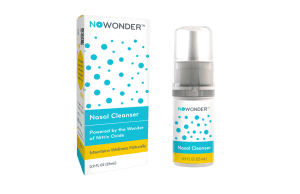
To understand how high cholesterol impacts heart health, it’s necessary to separate it into two basic types:
- Low-density lipoprotein (LDL) – “bad” cholesterol
- High-density lipoprotein (HDL) – “good” cholesterol
The next few sections explore what makes them different, why balance is crucial, and how modern therapies are used alongside diet and exercise to manage cholesterol effectively.
HDL vs. LDL: The good and the bad
Low-density lipoprotein (LDL): The “bad” cholesterol
LDL cholesterol is harmful because it contributes to plaque buildup in the arteries. Plaque is a sticky substance composed of cholesterol, fat, calcium, and other materials. Over time, it narrows the arteries (a condition known as atherosclerosis), making it harder for blood to flow. This can lead to high blood pressure, heart attacks, or strokes.
To lower LDL cholesterol levels:
- Limit saturated and trans fats that are found in fried foods, processed snacks, and fatty meats.
- Eat fiber-rich foods like whole grains, fruits, and vegetables, which help remove LDL cholesterol.
- Exercise regularly. Physical activity can help lower LDL cholesterol naturally.
- Consider medication if necessary. For some individuals, lifestyle changes alone are not enough, and cholesterol-lowering medications may be required.
High-density lipoprotein (HDL): The “good” cholesterol 
HDL cholesterol is considered beneficial because it helps clear LDL cholesterol from the bloodstream. Think of HDL as a cleaning crew. It transports excess LDL cholesterol to the liver, where it is broken down and removed from the body. Higher levels of HDL cholesterol are associated with a lower risk of heart disease.
To maintain or improve your HDL levels, consider:
- Get regular exercise. Activities like brisk walking, cycling, or swimming boost HDL.
- Eat healthy fats. Include sources like olive oil, nuts, and fatty fish in your diet.
- Avoid smoking. Smoking lowers HDL levels and damages blood vessels.
- Maintain a healthy weight. Excess body weight can reduce HDL levels.
The role of triglycerides in heart health
Cholesterol isn’t the only factor in cardiovascular health. Triglycerides are fats stored in your blood and they also play a role in issues such as plaque build-up. They are often high as a result of excess calories in the diet. High triglyceride levels can lead to arterial plaque and increase the risk of heart disease.
Ways to reduce high triglycerides:
- Cut back on sugars and refined carbs. Excess sugar is converted quickly into triglycerides.
- Limit alcohol consumption. Alcohol is broken down quickly in the liver and can elevate triglyceride levels.
- Maintain a healthy weight. Weight control can lead to lower triglyceride levels.
Balancing cholesterol with medication, diet, and exercise
When lifestyle changes alone are insufficient, doctors may prescribe cholesterol-lowering medications. One example is Liptruzet, a combination drug that contains atorvastatin (a statin) and ezetimibe.
- Atorvastatin reduces the liver’s production of LDL cholesterol.
- Ezetimibe limits cholesterol absorption in the intestines.
This dual action makes Liptruzet an effective option for patients with high cholesterol, particularly those with multiple cardiovascular risk factors. However, medication works best when paired with healthy habits, including:
- Eating a heart-healthy diet – Focus on whole, unprocessed foods.
- Exercising regularly – Aim for at least 150 minutes of moderate activity per week.
- Quitting smoking and limiting alcohol – Both contribute to cholesterol imbalances.
- Routine cholesterol monitoring – Blood tests help track progress and adjust treatment as needed.
Frequently Asked Questions (FAQ)
 How do statins work to reduce cholesterol in the body?
How do statins work to reduce cholesterol in the body?
Statins inhibit an enzyme the liver uses to produce cholesterol. By reducing the liver’s ability to create cholesterol, statins effectively lower LDL cholesterol levels and, in some cases, can modestly increase HDL cholesterol.
The main benefits of statins are lower LDL cholesterol levels, reduced inflammation, decreased heart disease risk, and the prevention of recurrent events in those who have already suffered a cardiovascular event.
Statins are recommended for individuals with high LDL cholesterol (above 190 mg/dL), a history of cardiovascular disease (heart attack or stroke), or a high estimated risk of heart disease based on medical history.
What are the effects of high cholesterol?
Elevated cholesterol increases the risk of atherosclerosis, where fatty deposits build up in arteries, leading to reduced blood flow. This can result in high blood pressure, chest pain, heart attacks, and strokes. It can also impact circulation to other parts of the body, potentially leading to complications like peripheral artery disease.
What are the dangers of elevated cholesterol levels?
Uncontrolled high cholesterol is a major risk factor for cardiovascular diseases. When arteries become narrowed due to cholesterol deposits, blood flow to vital organs is restricted. If a cholesterol plaque ruptures, it can form a clot that blocks blood supply, causing a heart attack or stroke.
Is high cholesterol hereditary?
Yes, genetics play a role in cholesterol levels. Familial hypercholesterolemia is a genetic disorder that leads to very high LDL levels from a young age. Even if you inherit a tendency for elevated cholesterol, lifestyle changes and medication can help manage it.
What foods should I avoid with high cholesterol?
Avoid foods high in saturated and trans fats, such as fried foods, processed meats, full-fat dairy, and baked goods with hydrogenated oils. Instead, focus on whole grains, lean proteins, healthy fats, and fiber-rich vegetables.
What is considered high cholesterol?
A total cholesterol level above 200 mg/dL is considered high. LDL levels should be below 100 mg/dL, while HDL should be above 40 mg/dL for men and 50 mg/dL for women. Triglycerides should remain under 150 mg/dL.
Can high cholesterol cause heart disease?
Yes. When cholesterol builds up in arteries, it restricts blood flow to the heart, raising the risk of coronary artery disease, heart attacks, and strokes. Keeping LDL low and HDL high helps reduce these risks.
What are the symptoms of high cholesterol?
High cholesterol typically has no noticeable symptoms. The only way to detect it is through a blood test. However, if high cholesterol leads to a heart attack or stroke, symptoms such as chest pain, shortness of breath, or weakness on one side of the body may occur.
How is high cholesterol diagnosed?
A lipid panel blood test measures total cholesterol, LDL, HDL, and triglycerides. Doctors use this information to assess cardiovascular risk and determine if lifestyle changes or medication are needed.


 How do statins work to reduce cholesterol in the body?
How do statins work to reduce cholesterol in the body?











